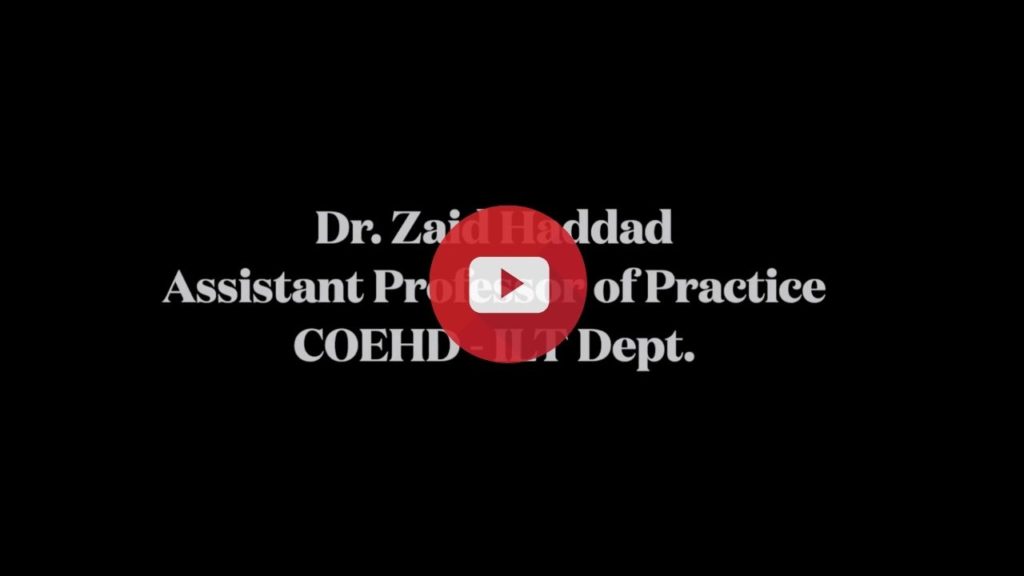Handling Difficult Discussions
in Blog Post
By M. Sidury Christiansen, PhD
UTSA 2021-2022 Next-Gen Provost Fellow
Associate Professor, COEHD Bicultural Bilingual STD
This week our Teaching Tip comes from Zaid Haddad, Assistant Professor of Practice in the Department of Interdisciplinary Teaching and Learning in the College of Education and Human Development. Zaid teaches courses such as Critical Perspectives in Curriculum and Instruction for graduate students or how to teach Social Studies in K-12 schools for undergraduate students. Both topics, Zaid explains, can be contentious by nature because they are part of a larger conversation in the local and national news about critical race theory.
The key to Zaid’s success in handling difficult discussions in his classes is to set the stage from day one and in the syllabus. This means including an explanation of the nature of the topic, the framework/lens the class has, and the guidelines for students. He explains that unlike formulaic syllabi, he writes his explanations and expectations in his own words. Zaid thinks that students need to see a high level of authenticity from their instructor. Thus, the way faculty portray themselves in the syllabus is key to establishing good rapport and trust with their students. To achieve this level of authenticity and clarity, Zaid uses language of openness that encourages students to participate without having to necessarily agree with him or with each other as long as they can present their arguments in a respectful and academic manner.
In order to de-escalate hostile behaviors or emotional disagreements, Zaid recommends stepping back and taking the time to respond and address issues in his classroom. He first explains that he asks students to do Dialogic Journals and teaches students to have discussions by introducing them to the Four Agreements of Courageous Conversations (Singleton & Hayes, 2006). Preparedness is the key to a good classroom discussion.
Watch Zaid explain the ways in which he avoids conflict during difficult discussions.
Since he began preparing the students from the very beginning of the class and investing class time to provide them tools (and rules) with which to communicate, Zaid admits he has seen significantly less conflict during difficult discussions in his classes. Additionally, by adding digital literacy assignments such as the creation of the Transformative Talk podcast, students focus on understanding the material and presenting different points of view in a respectful way rather than trying to convince each other or “win” an argument, tasks that have no place in a learning environment that seeks to understand the critical issues that education faces.
Zaid recommends instructors to utilize Blackboard’s tools such as Wikis, Journals, and discussion boards (Padlet), all which have helped him set his students up for an excellent experience and fruitful discussions. Additionally, UTSA Adobe Creative Cloud offers programs such as Adobe Audition where students can record high quality podcasts.
Any questions or requests for more information can be directly addressed to Zaid at zaid.haddad@utsa.edu.
For More Review:
- Balancing Classroom Civility and Free Speech: Lessons from a history classroom. An Essay by UTSA History Professor, Catherine Nolan-Ferrell for AAUP
Tags: Adobe Audition, Adobe Creative Cloud, Blackboard tools, civil discussions, class discussion, Communication, Dialogic Journals, digital literacy assignments, Four Agreements of Courageous Conversations, podcasts, syllabus design


